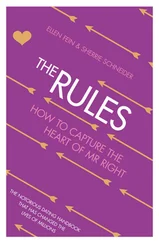Frankie handed me the bottle. “Here. You’d better open it now.”
The weather had warmed up enough to dine on the terrace. We brought sandwiches, dishes, and the white bakery bag from the Upper Crust to a table next to the railing. Frankie poured the wine as I sat there, numbly staring at the tidy rows of bare vines anchored by the timeless Blue Ridge. Somewhere a tractor motor started up, a comforting, placid thrumming. Probably one of the crew cutting the grass for the first time this year. Spring was definitely on its way.
The seasons would unfold as they always did, beginning with the hopefulness I felt each year at this time when winter was done and gone. In a few short weeks the vines would begin to bud and then they’d be flower-covered and fragrant. Later the grapes would emerge as véraison , the ripening process, played out through the wilting heat of summer. Harvest would begin in August and continue into autumn as we spent hectic days and nights turning the grapes into wine.
Life would go on with its rhythm and cycles, except this year would be unlike any other I’d known. Neighbors and friends could possibly lose everything they’d spent a lifetime working for—in some cases, money that had been in families for generations. No matter the wound was self-inflicted; if it happened, it was going to change Atoka for good.
And I was losing Quinn.
“You want to talk about it?” Frankie asked.
“I don’t know where to start.”
“Try the beginning.”
I shrugged. Why keep it all inside anymore?
So I told her, except I left out Rebecca’s pregnancy test and my speculation that Harlan was probably the baby’s father. The story was lurid enough as it was.
“You think Rebecca did what Sir Thomas said she did?” Frankie asked. “Stole all that money?”
We finished our sandwiches and shared the cow puddles. She picked up the wine bottle and refilled our glasses.
“I think he’s blaming her for what he did, and she’s not around to defend herself or contradict him,” I said.
“You still think she’s alive, don’t you?” Frankie asked.
“Nothing would surprise me anymore.”
“Lucie.” Her voice was gentle. “Maybe you just want her to be alive because they haven’t found her body.”
“That’s a pretty good reason, don’t you think? Nor has anyone found ‘Robin Hood,’ the mysterious guy who gave the Madison wine cooler and her jewelry to that homeless man. That’s a lot of missing people.”
“All right, assuming you’re right, then who helped her disappear?”
I drank some wine. “I wish I knew.”
“Someone inside Asher Investments? Although they’d probably be in on the scam.” Frankie frowned, working out her own logic. “Wouldn’t they?”
“Not if it was confined to a very small circle that excluded Rebecca. If what Ian said is true, Rebecca didn’t know what was going on under her nose the first time he told her about his suspicions. She told him to go to hell,” I said.
“Then changed her mind and decided to help him once she found out he was right?” Frankie asked.
“I think so. Although that’s the million-dollar question—or billion-dollar question, in this case. What was it she left for Ian to find?”
And who was Rebecca’s ally? Someone I knew? Olivia Tarrant, Sir Thomas’s personal assistant? Simon deWolfe, his half brother? Olivia had purposely excluded Rebecca from her definition of who made it into what she called “the Asher family.” So I doubted she was the one. But what about Simon? He’d been in the perfect position that evening to meet up with Rebecca down by the river.
“You know,” Frankie said, “you might consider the obvious. That Sir Thomas is telling the truth about Rebecca.”
“Frankie, Rebecca did not steal that money.”
“Just because she was your friend—”
“I know she didn’t do it.”
Frankie held up her hands like a shield. “Okay, okay. I give up.”
“Sorry. I didn’t mean to snap at you. I know you think I can’t be objective, or that I’m just being naïve—but I’m not.”
“It seems to me,” she said in her calm, reasoning way, “that Rebecca left quite a lot at your doorstep. Counted on your loyalty and your integrity to do something she wouldn’t do herself.”
The tractor motor cut off. I let her words sink in as a soft breeze rustled the tree branches and the birds twittered cheerfully. Was she right?
“Unless,” I said at last, “there was some reason Rebecca couldn’t do it herself.”
“What reason would that be? Aside from the possibility that she is, in fact, dead.”
I finished my wine. “I don’t know. But something must have changed. Maybe Rebecca and her partner made a plan, then something went wrong.”
“You don’t have to pick up the pieces, Lucie.”
She stood, lips pursed in disapproval, as she gathered our dishes and the other lunch debris. I grabbed the empty wine bottle and the two glasses as we cleaned up in silence.
In the kitchen she began stacking plates in the dishwasher. “What are you going to do now?”
“See if I can figure out what Rebecca left for Ian. She wanted me to know or she wouldn’t have set it up for the two of us to get together.”
“Lucie!” Frankie crushed the lunch wrappers into a tight ball. “Don’t do this! You don’t have to get involved. Do you want to end up like Ian?”
“I already am involved,” I said. “Whether I want to be or not, someone thinks I know more than I do.”
“Let the police handle it.”
“I tried. That detective … Horne … thinks I’m nuts. Anyway, there’s something else.”
“What?” She threw the papers into the trash.
“If it’s true that Asher Investments is nothing but a Ponzi scheme, people we care about could lose a lot of money.”
“No one held a gun to their heads and made them give their life savings to Harlan Jennings.”
“The Romeos, Frankie. Retired guys who worked in the community and still volunteer around here. They trusted Harlan—and why wouldn’t they? His father was a Romeo, too. One of them.”
She picked up the coffeepot and turned on the tap full force. Water splattered all over the sink. “I wonder if Harlan managed to get his money out in time. If he knew what was going on, then he’s as guilty as Asher is. If he was in the dark, you’ve got to wonder what was going through his head that no warning bells ever went off.”
“I don’t know,” I said. “Either way, he loses.”
She filled the pot and wiped the sink. “Walk away before it’s too late.”
I didn’t say anything. Too late was a long time ago. And now there was no one else to find what Rebecca had left behind except me.
Unfortunately my only clue lay buried in the poetry of a man who had been dead for two centuries.
When I showed up in the barrel room later that afternoon for the Viognier bench trials, Quinn was sitting on a stool in the lab, twirling a pencil between his fingers. His mouth moved soundlessly as he stared into space and ignored the lab book, which sat open on the workbench in front of him.
“You’re talking to yourself,” I said.
“I’m doing mental calculations.” He squinted at me and slapped the book shut. “You look like you can hardly keep your eyes open. When’s the last time you got any sleep?”
“Last night.”
“You are one lousy liar.” He threw down the pencil. “Sure you want to work on the blend?”
I sighed. “Honestly, no. You got a better idea?”
“Why don’t we go somewhere, get lost for a while? Don’t tell the boss. She’s a slave driver.”
“That’s not what I heard. She’s hardworking, benevolent, and not appreciated nearly enough for what she does around here. She also, I might add, pays your salary.”
Читать дальше












